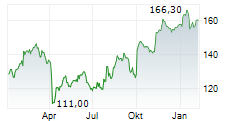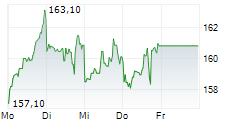
23 September 2024
Datopotamab deruxtecan final overall survival results reported in
patients with metastatic HR-positive, HER2-low or negative breast cancer in
TROPION-Breast01 Phase III trial
Survival results for AstraZeneca and Daiichi Sankyo's datopotamab deruxtecan in TROPION-Breast01 did not achieve statistical significance versus chemotherapy
Trial previously met the dual primary
endpoint of progression-free survival
High-level results from the TROPION-Breast01 Phase III trial of datopotamab deruxtecan (Dato-DXd) compared to investigator's choice of chemotherapy, which previously met the dual primary endpoint of progression-free survival (PFS), did not achieve statistical significance in the final overall survival (OS) analysis in patients with inoperable or metastatic hormone receptor (HR)-positive, HER2-low or negative (IHC 0, IHC 1+ or IHC 2+/ISH-) breast cancer previously treated with endocrine-based therapy and at least one systemic therapy.
This analysis follows the positive PFS results presented at the 2023 European Society for Medical Oncology Congress which showed datopotamab deruxtecan demonstrated a statistically significant and clinically meaningful improvement in PFS. An improvement in patient-reported outcomes was also seen.1 The PFS data and additional results for key secondary endpoints were published this month in the Journal of Clinical Oncology.
The safety profile of datopotamab deruxtecan was consistent with that observed in the previous analysis including lower rates of Grade 3 or higher treatment-related adverse events compared to chemotherapy, and no new safety concerns identified. All grade interstitial lung disease (ILD) rates remained low with no new Grade 3 or higher ILD events observed.
With multiple antibody drug conjugates (ADCs) approved during the course of the trial, including Enhertu (trastuzumab deruxtecan), subsequent treatment following patients' disease progression or treatment discontinuation is likely to have affected survival results.
Susan Galbraith, Executive Vice President, Oncology R&D, AstraZeneca, said: "The metastatic HR-positive breast cancer treatment landscape has advanced remarkably in the last several years to the benefit of patients. Based on the TROPION-Breast01 results, there is evidence of the clinical value of datopotamab deruxtecan in this setting. We will continue discussions with regulatory authorities and apply insights from these results to our clinical development programme for datopotamab deruxtecan in breast cancer."
Ken Takeshita, MD, Global Head, R&D, Daiichi Sankyo, said: "Datopotamab deruxtecan has previously shown a statistically significant progression-free survival benefit in TROPION-Breast01, a result supported by multiple meaningful secondary measures including patient-reported outcomes. We are proud to have brought forth a new standard of care for patients with metastatic breast cancer with Enhertu and we remain committed to making datopotamab deruxtecan another potential option for patients who can benefit."
Datopotamab deruxtecan is a specifically engineered TROP2-directed DXd ADC discovered by Daiichi Sankyo and being jointly developed by AstraZeneca and Daiichi Sankyo.
The data will be presented at a forthcoming medical meeting and shared with regulatory authorities currently reviewing applications for this indication.
In addition to TROPION-Breast01, AstraZeneca and Daiichi Sankyo are evaluating datopotamab deruxtecan alone and with immunotherapy as treatment for patients with triple-negative or HR-low, HER2-negative breast cancers in the TROPION-Breast02, TROPION-Breast03, TROPION-Breast04 and TROPION-Breast05 Phase III trials.
Notes
?HR-positive breast cancer
Breast cancer is the second most common cancer and one of the leading causes of cancer-related deaths worldwide.2 More than two million breast cancer cases were diagnosed in 2022 with more than 665,000 deaths globally.2 While survival rates are high for those diagnosed with early breast cancer, less than 35% of patients diagnosed with or who progress to metastatic disease are expected to live five years following diagnosis.3
Approximately 70% of diagnosed cases are considered what has been historically called HR-positive, HER2-negative breast cancer (measured as HER2 score of IHC 0, IHC 1+ or IHC 2+/ISH-).3 Endocrine therapies are widely given consecutively in the early lines of treatment for HR-positive metastatic breast cancer; however, after two lines of treatment, further efficacy from endocrine therapy is often limited.4 The current standard of care following endocrine therapy is chemotherapy, which is associated with poor response rates and outcomes.4-7
TROP2 is a protein broadly expressed in HR-positive, HER2-negative breast cancer and is associated with increased tumour progression and poor survival.8,9
TROPION-Breast01
?TROPION-Breast01 is a global, randomised, multicentre, open-label Phase III trial evaluating the efficacy and safety of datopotamab deruxtecan (6.0mg/kg) versus investigator's choice of single-agent chemotherapy (eribulin, capecitabine, vinorelbine or gemcitabine) in adult patients with unresectable or metastatic HR-positive, HER2-low or negative (IHC 0, IHC 1+ or IHC 2+/ISH-) breast cancer who have progressed on and are not suitable for endocrine therapy per investigator assessment and have received at least one additional systemic therapy for unresectable or metastatic disease.
Following disease progression or discontinuation of datopotamab deruxtecan or chemotherapy, patients had the option to receive subsequent treatment at the discretion of their physician. Crossover between trial arms was not permitted.
The dual primary endpoints of TROPION-Breast01 are PFS as assessed by blinded independent central review and OS. Key secondary endpoints include objective response rate, duration of response, investigator-assessed PFS, disease control rate, time to first subsequent therapy and safety.
TROPION-Breast01 enrolled more than 700 patients in Africa, Asia, Europe, North America and South America. For more information visit ClinicalTrials.gov.
?Datopotamab deruxtecan (Dato-DXd)
?Datopotamab deruxtecan (Dato-DXd) is an investigational TROP2-directed ADC. Designed using Daiichi Sankyo's proprietary DXd ADC Technology, datopotamab deruxtecan is one of six DXd ADCs in the oncology pipeline of Daiichi Sankyo, and one of the most advanced programmes in AstraZeneca's ADC scientific platform. Datopotamab deruxtecan is comprised of a humanised anti-TROP2 IgG1 monoclonal antibody, developed in collaboration with Sapporo Medical University, attached to a number of topoisomerase I inhibitor payloads (an exatecan derivative, DXd) via tetrapeptide-based cleavable linkers.
?A comprehensive global clinical development programme is underway with more than 20 trials evaluating the efficacy and safety of datopotamab deruxtecan across multiple cancers, including NSCLC, triple-negative breast cancer (TNBC) and HR-positive, HER2-negative breast cancer. The programme includes seven Phase III trials in lung cancer and five Phase III trials in breast cancer evaluating datopotamab deruxtecan as a monotherapy and in combination with other anticancer treatments in various settings.
?Daiichi Sankyo collaboration
?AstraZeneca and Daiichi Sankyo entered into a global collaboration to jointly develop and commercialise Enhertu in March 2019 and datopotamab deruxtecan in July 2020, except in Japan where Daiichi Sankyo maintains exclusive rights for each ADC. Daiichi Sankyo is responsible for the manufacturing and supply of Enhertu and datopotamab deruxtecan.
?AstraZeneca in breast cancer
?Driven by a growing understanding of breast cancer biology, AstraZeneca is starting to challenge, and redefine, the current clinical paradigm for how breast cancer is classified and treated to deliver even more effective treatments to patients in need - with the bold ambition to one day eliminate breast cancer as a cause of death.
AstraZeneca has a comprehensive portfolio of approved and promising compounds in development that leverage different mechanisms of action to address the biologically diverse breast cancer tumour environment.
With Enhertu (trastuzumab deruxtecan), a HER2-directed ADC, AstraZeneca and Daiichi Sankyo are aiming to improve outcomes in previously treated HER2-positive and HER2-low metastatic breast cancer and are exploring its potential in earlier lines of treatment and in new breast cancer settings.
In HR-positive breast cancer, AstraZeneca continues to improve outcomes with foundational medicines Faslodex and Zoladex (goserelin) and aims to reshape the HR-positive space with first-in-class AKT inhibitor, Truqap, and next-generation SERD and potential new medicine camizestrant. AstraZeneca is also collaborating with Daiichi Sankyo to explore the potential of TROP2-directed ADC, datopotamab deruxtecan, in this setting.
PARP inhibitor Lynparza (olaparib) is a targeted treatment option that has been studied in early and metastatic breast cancer patients with an inherited BRCA mutation. AstraZeneca with MSD (Merck & Co., Inc. in the US and Canada) continue to research Lynparza in these settings and to explore its potential in earlier disease.
To bring much-needed treatment options to patients with TNBC, an aggressive form of breast cancer, AstraZeneca is evaluating the potential of datopotamab deruxtecan alone and in combination with immunotherapy Imfinzi (durvalumab), Truqap in combination with chemotherapy, and Imfinzi in combination with other oncology medicines, including Lynparza and Enhertu.
?AstraZeneca in oncology
?AstraZeneca is leading a revolution in oncology with the ambition to provide cures for cancer in every form, following the science to understand cancer and all its complexities to discover, develop and deliver life-changing medicines to patients.
?The Company's focus is on some of the most challenging cancers. It is through persistent innovation that AstraZeneca has built one of the most diverse portfolios and pipelines in the industry, with the potential to catalyse changes in the practice of medicine and transform the patient experience.
?AstraZeneca has the vision to redefine cancer care and, one day, eliminate cancer as a cause of death.
?AstraZeneca
AstraZeneca (LSE/STO/Nasdaq: AZN) is a global, science-led biopharmaceutical company that focuses on the discovery, development, and commercialisation of prescription medicines in Oncology, Rare Diseases, and BioPharmaceuticals, including Cardiovascular, Renal & Metabolism, and Respiratory & Immunology. Based in Cambridge, UK, AstraZeneca's innovative medicines are sold in more than 125 countries and used by millions of patients worldwide. Please visit astrazeneca.com and follow the Company on social media @AstraZeneca.
?Contacts
?For details on how to contact the Investor Relations Team, please click here. For Media contacts, click here.
?References
1. Pernas S, et al. Datopotamab deruxtecan (Dato-DXd) vs chemotherapy in previously-treated inoperable or metastatic hormone receptor-positive, HER2-negative (HR+/HER2-) breast cancer: Patient-reported outcomes (PROs) from the TROPION-Breast01 study. Presented at: ASCO Congress 2024; 31 May - 4 June, 2024; Chicago, IL. Abstract 1006.
2. Bray F, et al. Global cancer statistics 2022: GLOBOCAN estimates of incidence and mortality worldwide for 36 cancers in 185 countries. CA Cancer J Clin. 2024 Apr 4. doi: 10.3322/caac.21834.
3. National Cancer Institute. Surveillance, Epidemiology and End Results Program. Available at: https://seer.cancer.gov/statfacts/html/breast-subtypes.html. Accessed August 2024
4. Manohar P, et al. Updates in endocrine therapy for metastatic breast cancer. Cancer Biol Med. 2022 Feb 15; 19(2):202-212.
5. Cortes J, et al. Eribulin monotherapy versus treatment of physician's choice in patients with metastatic breast cancer (EMBRACE): a phase 3 open-label randomised study. Lancet. 2011;377:914-923.
6. Yuan P, et al. Eribulin mesilate versus vinorelbine in women with locally recurrent or metastatic breast cancer: A randomised clinical trial. Eur J Cancer. 2019;112:57-65.
7. Jerusalem G, et al. Everolimus Plus Exemestane vs Everolimus or Capecitabine Monotherapy for Estrogen Receptor-Positive, HER2-Negative Advanced Breast Cancer. JAMA Oncol. 2018;4(10):1367-1374.
8. Goldenberg D, et al. The emergence of trophoblast cell-surface antigen 2 (TROP-2) as a novel cancer target. Oncotarget. 2018;9(48): 28989-29006.
9. Vidula N, et al. Trophoblast Cell Surface Antigen 2 gene (TACSTD2) expression in primary breast cancer. Breast Cancer Res Treat. 2022 Aug;194(3):569-575.
?
Adrian Kemp
Company Secretary
AstraZeneca PLC?
This information is provided by RNS, the news service of the London Stock Exchange. RNS is approved by the Financial Conduct Authority to act as a Primary Information Provider in the United Kingdom. Terms and conditions relating to the use and distribution of this information may apply. For further information, please contact rns@lseg.com or visit www.rns.com.



